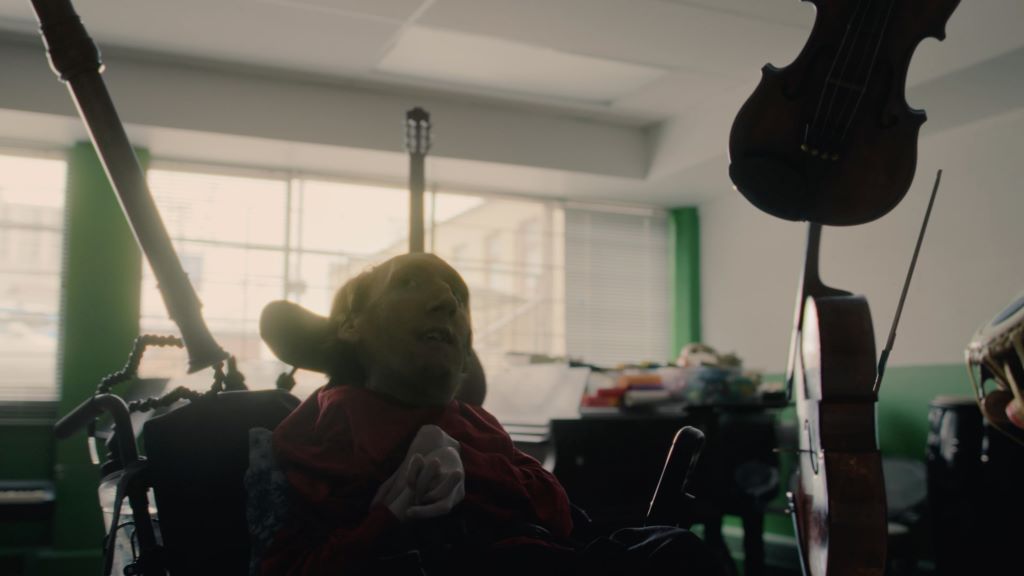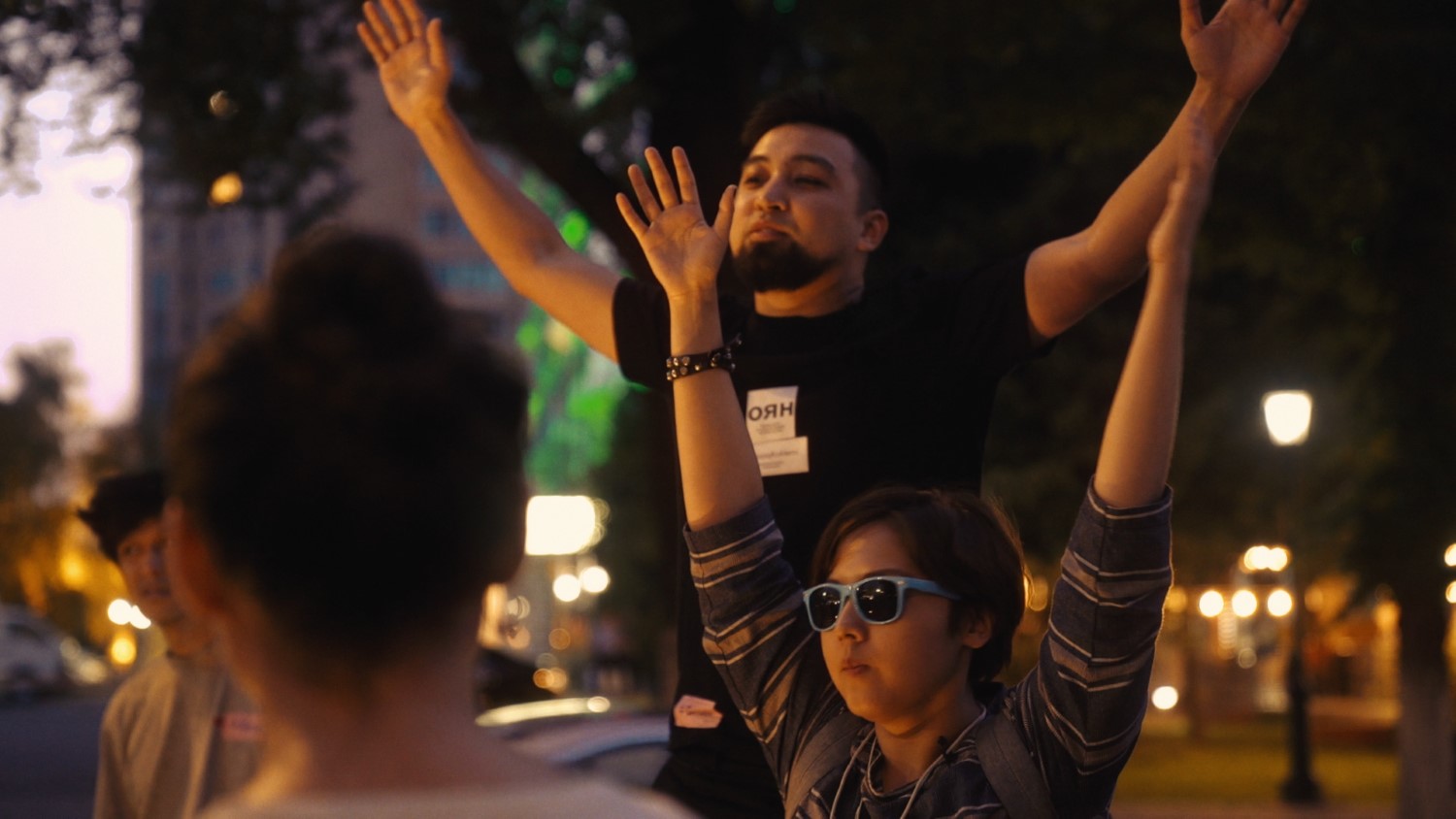Ari’s Theme
(Canada, 96 min.)
Dir. Nathan Drillot, Jeff Lee Petry
Programme: Emergence
For Ari Kinarthy, nothing, not even a debilitating disability, was going to stop him from realizing his musical vision. This powerful portrait of a man on a mission has two intentions. One is to show the life experience of someone with spinal muscular atrophy type 2 and the other is to demonstrate how someone who cannot use his legs, has almost no use of his hands–and therefore cannot play an instrument or type into a computer programme–collaborates to create a gorgeous work of music to honour his parents.
His disease, which involves gradual loss of muscle function, leaves him in a near constant state of fear. He is maximally immune-compromised, must isolate during the flu season and cannot have a vibrant social life. Every beautiful dream that he has, to walk, or play an instrument, is compromised by constant medical crises, like a sudden inability to breathe, or the onset of an illness that others can recover from in days but that could be fatal for him. Animation by Scott Laugheed gives visual context to Ari’s pain and dread.
Yet still he possesses an inspiring positivity. He was warned that he’d likely not live past 30 but smiles as he recalls living beyond his predicted limit and now intends to make the most of whatever time he has left. He speaks in lovely musical metaphors, describing his mother, with her dynamism, as a piano and his father, as someone whose presence resonates like a cello. And though he suffers physically, he still makes sure to articulate his privilege: he moves via a high-tech wheelchair, has a high-level of personal care available to him, and always has food on the table.
And he has a talent that he doesn’t want to waste. Ari has a big musical vision and he’s not interested in creating a small work; he wants a grand symphonic piece. But composing is a demanding slog. He has to think before he can finish an idea; he doesn’t have the luxury of letting the notes flow from his fingers. And he needs to find a musician who can sync up his melodies, concepts for orchestration and tonal shifts with a complex computer programme—someone prepared to set aside his own compositions in the service of someone else’s. Ari finds not one but two in the persons of Allan Slade and Johannes Winkler, who work one-on-one with him as he realizes his vision.
The scenes of Ari interacting with his collaborators have a surprising emotional heft. Slade and Winkler show enormous respect for this struggling musician and immense empathy for his circumstances as well as an uncanny ability to translate Ari’s complicated ideas to music that can be read and played by other musicians and which, more important, brings Ari immense pleasure. Listen to them to talk to each other in short musical phrases and rhythms and you can grasp the uniqueness of their connection.
Ari does get his wish to do something meaningful and create a legacy in a work intended to be accompanied by home movies of his family. But Ari’s Theme is not a feel-good piece about a gifted man struck down by an illness who rises above it. For one thing, Ari can be proud of his work but still longs to fall in love, something which, given that his health restrictions restrict his social life, is unlikely to happen. And the notion that his life will be cut short that hangs over the narrative adds to the sadness.
Ari’s music plays throughout the film. It’s brooding and beautiful, epic and tender, the perfect soundtrack for a documentary that is all of those things.












